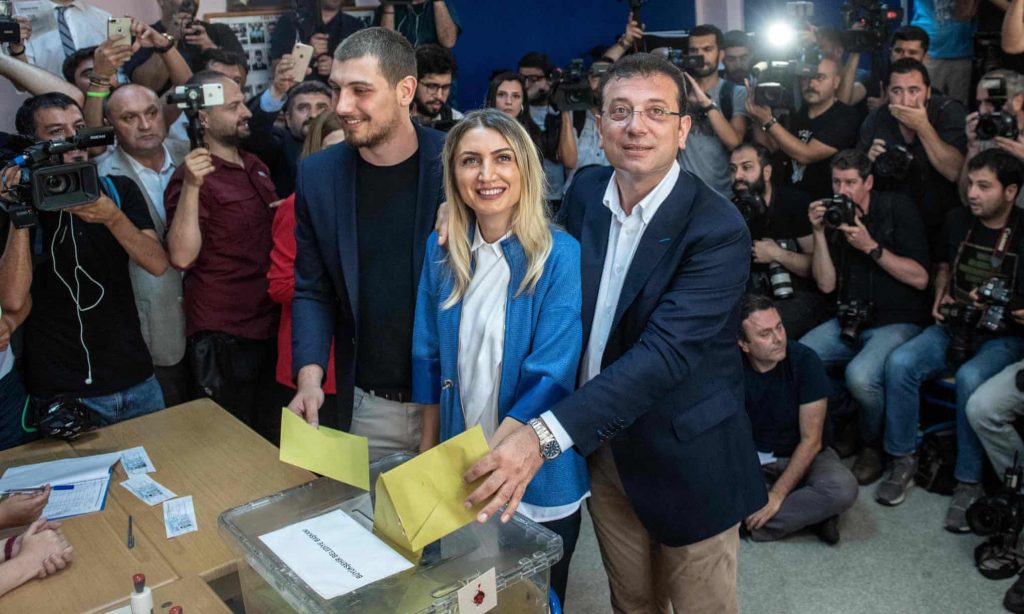
- ARAB NEWS
- 18 Jul 2025

Regardless of the many differences and divisions that exist between the distinct sections of a society, people often come together in the face of adversity and show solidarity in times of war, disaster and crisis.
This kind of unity is perhaps most evident when nations, sharing a sense of a common destiny, face real and potential threats to their very existence. However, it is difficult to sustain this unity after the immediate threat is vanquished.
As the number of people around the world infected by the coronavirus disease (COVID-19) continues to grow day by day — and policymakers struggle to get the pandemic under control, while dealing with its effects and planning for the aftermath — no country can escape the crisis. As the world goes through such a difficult time, one of the priorities of the leaders should be to calm people’s fears and, as much as possible, avoid the polarization of their societies.
Turkey is one of many countries continuing to deal with multiple regional and global issues while also struggling with the COVID-19 outbreak. The first confirmed case was discovered in the country on March 11. On April 1, Health Minister Fahrettin Koca revealed that the number of confirmed cases stood at 15,679, and the death toll had reached 277.
The coronavirus is, however, more than simply a public health issue. The global scale of the outbreak has political, economic, social and psychological effects on every nation.
In Turkey, it has increased the polarization in an already divided society. As the number of cases increases and the crisis deepens, respectful political discourse has hit a new low, rhetoric on social media has become ever more discriminatory, and Turkish society is becoming increasingly divided.
All of this begs the question: If a deadly pandemic that threatens everyone — irrespective of ethnicity, politics, religious beliefs, wealth or anything else — cannot unite society, what can?
The pandemic has revived the rivalry between President Recep Tayyip Erdogan and Istanbul Mayor Ekrem Imamoglu with disputes about the allocation of funds and the introduction of a lockdown endangering coordinated efforts to limit the spread of the virus.
On March 30, Erdogan launched a National Solidarity Campaign, with the slogan “We are self-sufficient, Turkey,” in an attempt to rally support for the fight against the coronavirus. He also promised to donate seven months of his salary to the initiative, and said the goal was to provide additional support to low-income workers who are suffering financially as a result of the precautionary measures taken to slow the spread of the disease. So far, the campaign has raised 552.5 million Turkish lira ($82.4 million), according to its official website. The contributors include state institutions, private businesses and politicians.
Meanwhile, Imamoglu, seen as a possible contender for the presidency in 2023, launched his own municipal campaign under the slogan “We will succeed together.”
He is seeking cash and other donations from wealthy Turks to help the hundreds of thousands of less-well-off citizens who are in need.
On Wednesday, the government denounced his municipal campaign and branded it illegal. This fueled further political polarization of Turkish society, with social media split between “us” and “them” based on which party is supported; each side trying to prove which is doing the best job for the people.
It is only natural that people who support different political parties or come from different parts of the country might have differing opinions. However, rather than indulging in negative attacks on each other they need to engage with each other in constructive criticism and debate. It is important, in any country, to raise the level of the debate because constructive criticism does not only highlight mistakes, it also suggests where and how improvements can be made.
This is not happening, however, and the psychological damage caused by the growing polarization is disturbing.
As in all nations, the people of Turkey must work together in a spirit of national solidarity to emerge from the pandemic prepared to overcome the looming economic crisis. Once the immediate health threat is over, the opposition can certainly play its part by highlighting the mistakes that were made. That, however, is for the future; this is not the time to be engaging in party politics.
Re-evaluating and restructuring society and the economy will be an important task in the post-pandemic era. For now, both the government and the municipalities — and more importantly, every section of Turkish society — must embrace every step, without discrimination, that is being taken to contain the virus.
The pandemic has revived the rivalry between President Recep Tayyip Erdogan and Istanbul Mayor Ekrem Imamoglu.
Sinem Cengiz
The authorities in Turkey are gradually implementing measures to limit the spread of the virus and mitigate its economic and social effects. These measures include economic and social aid packages, although they are still the subjects of debate. Certain responsibilities rest on the shoulders of citizens during times of crisis as well. Policymakers expect the public to cooperate with government instructions designed to keep people safe — staying indoors, for example.
The state and the people each have responsibilities, therefore, and the global health crisis can only be overcome if they coordinate and work together. In fact, this is the most crucial step for stopping the progress of the pandemic. At such times, it is critical that everyone, whether they are in power or in opposition, works together to make the best decisions for the common good.
As a citizen, I am tired of the polarization in Turkish society, and the lack of solidarity at such a troubling time. Like the vast majority of the Turkish people, I want to see everyone in my country working together in unity and solidarity to emerge from this pandemic as soon as possible.
Sinem Cengiz is a Turkish political analyst who specializes in Turkey’s relations with the Middle East. Twitter: @SinemCngz